Human Rights Archive
Free Newsletter
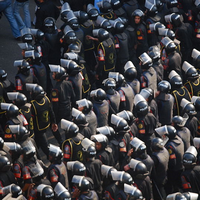
The recent events in Tunisia have reverberated across the Middle East and North Africa, but they have found particular resonance in Egypt, where anger and frustration with President Hosni Mubarak’s government has escalated considerably over the past year. The violence, corruption and media censorship that accompanied last November’s parliamentary elections severely damaged the government’s credibility. Exacerbating this general frustration is the expectation that Mubarak’s son, Gamal, will succeed him and simply continue the status quo. In this week’s demonstrations, which saw Jan. 25 renamed Youm al-Ghadab, or Day of Wrath, protestors have indeed directed some of their anger at the […]
A trial involving the son of a minor official accused in a hit an run accident in central China has attracted national attention, according to this Al Jazeera report. The trial sparked public outrage and an internet campaign calling for justice when the accused son brushed off the incident, telling authorities that his father was an official in the government.
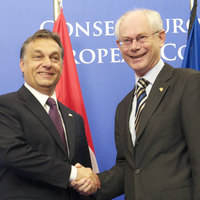
On Jan. 1, the same day Hungary began its six-month EU presidency, Hungarian Prime Minister Viktor Orban’s government introduced a law requiring “balanced” media coverage and instituting registration requirements for those disseminating information. The international furor over the new law threatens Hungary’s chances of making the most of its EU presidency, while offering a crumb of hope to a severely weakened opposition. France, Germany, Luxembourg, the U.K. and other EU members expressed concern over the media law, but Orban simply dismissed the criticism as misinformed and anti-Hungarian. He had already angered the business community by imposing surtaxes on banks, telecoms […]
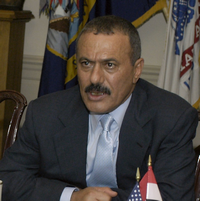
The fall of Tunisia’s President Zine el-Abidine Ben Ali is the latest reminder of how difficult it can be to encourage “friendly autocrats,” in the Middle East and throughout the world, to undertake reforms. It’s likely that, in light of Ben Ali’s fate, Yemen’s President Ali Abdullah Saleh is reassessing the advice that Secretary of State Hillary Clinton gave him during her visit earlier this month about moving ahead with political liberalization. But policymakers in Washington are apprehensive as well. Ben Ali’s government was often described as a “liberal autocracy,” where the state propagated a version of Islam more compatible […]
Presidents Barack Obama and Hu Jintao held a joint press conference on Jan. 19, 2011. The first question from the press, on the issue of human rights, comes at 16:45 in the video. Both Hu and Obama commented on a wide variety of issues, including human rights. “China recognizes and also respects the universality of human rights,” said President Hu. “At the same time, we do believe that we also need to take into account the different and national circumstances when it comes to the universal value of human rights.”
Tunisians are glad that President Zine El Abidine Ben Ali, who fled the country amid massive demonstrations last week, has been ousted, but they are keen to see the country up-and-running again. However, confusion reigns in many banks and official departments, there are still protests on the streets of Tunis, and the current caretaker government is in a precarious position.
Two Thai detainees charged with espionage have left a Cambodian court after three hours of questioning. The two are members of a group called the People’s Alliance for Democracy, known as “yellow shirts.” They are among seven Thais charged in December with illegal entry and encroachment on Cambodia’s border military zone.
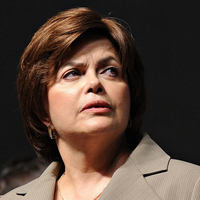
When Brazilian voters went to the polls last year, they voted for continuity. In electing Dilma Rousseff, a 63-year-old technocrat who had never run for office before, they responded to the pleas of their popular outgoing president, Luiz Inácio Lula da Silva. Lula, as he is known, had made his preference clear. “A vote for Dilma is a vote for me,” he told them, with both leaders promising that she would continue moving Brazil down the same path. When it comes to foreign policy, Dilma, as Brazilians call their new president, has also said she will follow her predecessor’s line. […]
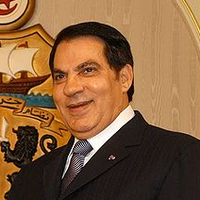
The Middle East and North Africa welcomed the New Year with a rare phenomenon: protests in an arc stretching from Algeria to Kuwait, directed against repressive regimes at home rather than a foreign power. The protests are a rare outpouring of pent-up frustration and anger at discrimination and failed economic and social policies as well as corruption in a region that is governed by authoritarian governments intolerant of public criticism. It is too early to conclude that the protests signal a milestone after which Middle Eastern population groups no longer quietly endure repression and economic deprivation and instead increasingly and […]
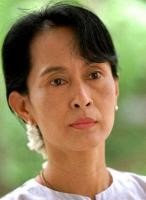
The recent release of Burmese democracy icon Aung San Suu Kyi could produce, as a ripple effect, a shift in the relationship between Burma and the U.S. Suu Kyi has stated that she intends to pursue reconciliation with the junta. This, in turn, could suit Washington’s softening stance toward the regime and the Obama administration’s stated preference for alternative policies in dealing with Burma. Suu Kyi’s decision is dictated by the reality on the ground. Her National League for Democracy party (NLD), which won 1990 elections that were never recognized domestically, was disbanded after it boycotted the November 2010 parliamentary […]
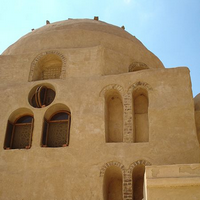
The holiday season has now ended, but not without leaving behind a trail of devastation and a rising sense of anguish among Christian communities in the Middle East. A series of deadly assaults and ominous threats — most dramatically the New Year’s church massacre in Alexandria, Egypt, and a threat from al-Qaida in Iraq to “open the doors of destruction and rivers of blood” upon Christians — have raised fears that Christianity may not survive in the region of its birth. The depth of the anxiety comes through in the words of Lebanon’s former-President Amin Gemayel, who declared, “What is […]
